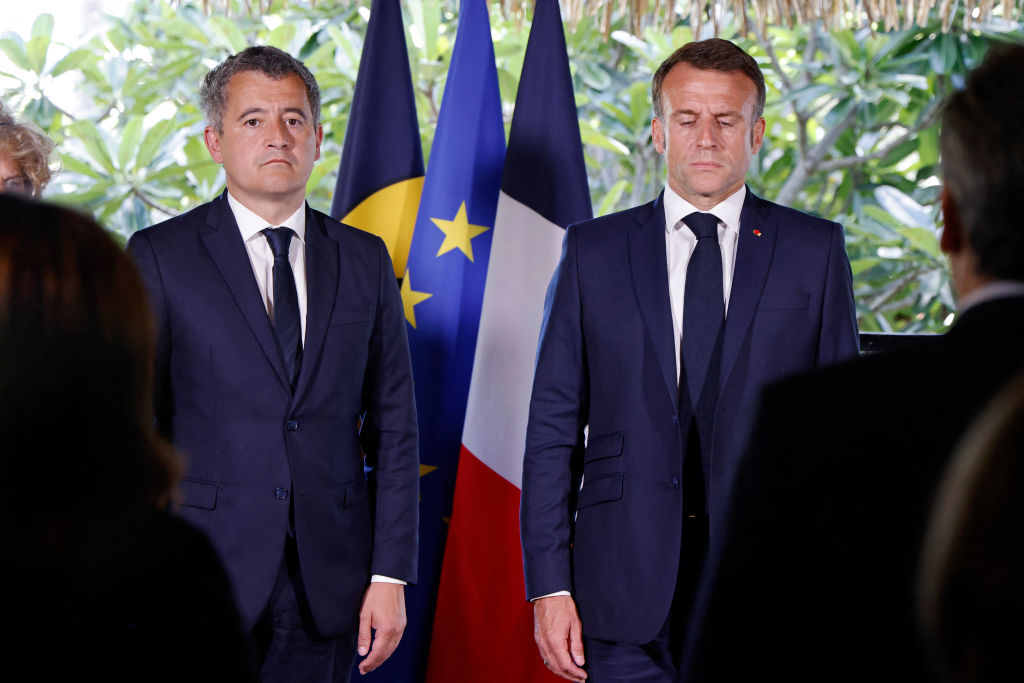It will be a long process for the deeply polarised local independence and loyalist parties to hold meaningful discussions after 14 days of violence, as the implications sink in of proposals put by French President Emmanuel Macron on his impromptu visit of 24 May.
Deep feelings continue to rage in New Caledonia, over Macron’s effort to impose sensitive changes to voter eligibility, weakening the indigenous vote and bringing to the boil bitter differences over independence and France’s handling of the final stage of 35 years of peace agreements.
Violence has continued since Macron’s departure after 18 hours in the territory, with a seventh casualty as a Kanak was killed by an off-duty policeman and homes were set alight in a northern Noumean suburb the night of 24 May. The barricades remain, and some suburbs are still not in French control. The airport will remain closed until 2 June.
After expressing his determination to listen with “humility and respect”, Macron met local officials and held separate bilateral meetings with the key party groupings, including independence leaders who had not turned up last time he visited in July 2023. A leader of the committee organising the protests was temporarily released from house arrest to participate. Macron spent an hour with young New Caledonians and spoke of their deep discouragement, fear and anger about the future.
Independence leaders placed the blame for the “chaotic” situation on France for having ended its impartiality and search for consensus.
Before he left, Macron said he would not force the voter eligibility change in its current form, and gave some weeks to allow for a return to peace and dialogue aiming at a broad agreement. He called on loyalist and “particularly” independence leaders, to lift their blockades before he would end the state of emergency.
He left behind three senior officials to head a dialogue mission, giving one month before a stock-take of the situation, when he hoped violence should have ended and “sincere” discussions be under way. Macron stipulated the broad agreement by local parties should “at least” include widening voter eligibility, sharing of powers and seats between the three provinces, “citizenship” (voting and employment rights), a social contract addressing inequalities, economic diversification, the future of nickel (the major resource), and a self-determination vote.
Loyalists immediately expressed their support.

On 25 May, the FLNKS independence coalition responded with astonishment that the President had brought with him the two ministers responsible for the “current carnage”, Defence Minister Sébastien Lecornu (who as Overseas-France Minister oversaw the flawed third referendum) and Interior Minister Gérald Darmanin. Still, independence leaders had met Macron, without those ministers present. They had reiterated their commitment to achieving full sovereignty. They placed the blame for the “chaotic” situation on France for having ended its impartiality and search for consensus, instead forcing legislation serving the loyalist parties.>
To end the crisis, they wanted France to withdraw the voter eligibility reform and return to impartiality and decisions by consensus; higher-level French or international personalities to head the dialogue mission; severe punishment of the anti-independence civil militias that operated with impunity; and for Macron to comply with his own constitution and not use force against the people and respect their right to decide for themselves.
Meanwhile the independence committee organising the protests said it would maintain resistance, albeit “relaxing the grip” to allow for people to access essential services.
Adding fuel to the fire, back in Paris, Macron publicly referred to the procedural option he had, now that both houses of Parliament had endorsed his constitutional reform, of taking the voter eligibility reform directly to a national referendum as an alternative to calling a meeting of both houses under constitutional amendment measures. Even local loyalists have reacted, a moderate Philippe Gomes lashing out, saying such a vote by the national French polity outside consensus in New Caledonia was a “political nonsense”.
It can only be hoped New Caledonia can return to a more peaceful situation, sufficient to allow discussion to proceed. Whether this can occur within the one month that Macron has stipulated is open to serious question.


